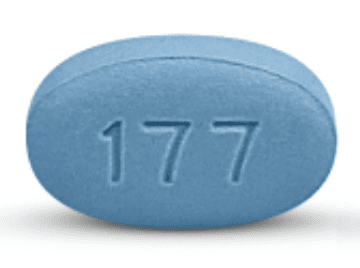Welireg Disease Interactions
There are 4 disease interactions with Welireg (belzutifan).
Belzutifan (applies to Welireg) anemia
Moderate Potential Hazard, Moderate plausibility.
Belzutifan can cause severe anemia that can require a blood transfusion. Patients should be monitored for anemia before starting treatment. Withhold treatment in patients with hemoglobin below 9 g/dL. Transfuse patients as clinically indicated. Close monitoring is advised during treatment.
Belzutifan (applies to Welireg) hypoxia
Moderate Potential Hazard, Moderate plausibility. Applicable conditions: Pulmonary Impairment
Belzutifan can cause severe hypoxia. Oxygen saturation should be monitored before treatment initiation. Withhold treatment if pulse oximeter is less than 88% or PaO2 is 55 mmHg or less. Monitor patients closely during treatment, administer oxygen or hospitalize as clinically needed. Treatment may need to be suspended or discontinued depending on the severity of the hypoxia.
Belzutifan (applies to Welireg) liver dysfunction
Moderate Potential Hazard, Moderate plausibility. Applicable conditions: Liver Disease
Belzutifan has not been studied in patients with moderate and severe hepatic impairment. Caution is advised. No dosage modification is required in patients with mild hepatic impairment.
Belzutifan (applies to Welireg) renal dysfunction
Moderate Potential Hazard, Moderate plausibility.
Belzutifan has not been studied in patients with severe renal impairment. Caution is advised. No dosage modification is required in patients with mild or moderate renal impairment.
Switch to professional interaction data
Welireg drug interactions
There are 401 drug interactions with Welireg (belzutifan).
More about Welireg (belzutifan)
- Welireg consumer information
- Check interactions
- Compare alternatives
- Pricing & coupons
- Drug images
- Side effects
- Dosage information
- During pregnancy
- FDA approval history
- Drug class: miscellaneous antineoplastics
- En español
Related treatment guides
Drug Interaction Classification
| Highly clinically significant. Avoid combinations; the risk of the interaction outweighs the benefit. | |
| Moderately clinically significant. Usually avoid combinations; use it only under special circumstances. | |
| Minimally clinically significant. Minimize risk; assess risk and consider an alternative drug, take steps to circumvent the interaction risk and/or institute a monitoring plan. | |
| No interaction information available. |
See also:
Further information
Always consult your healthcare provider to ensure the information displayed on this page applies to your personal circumstances.


